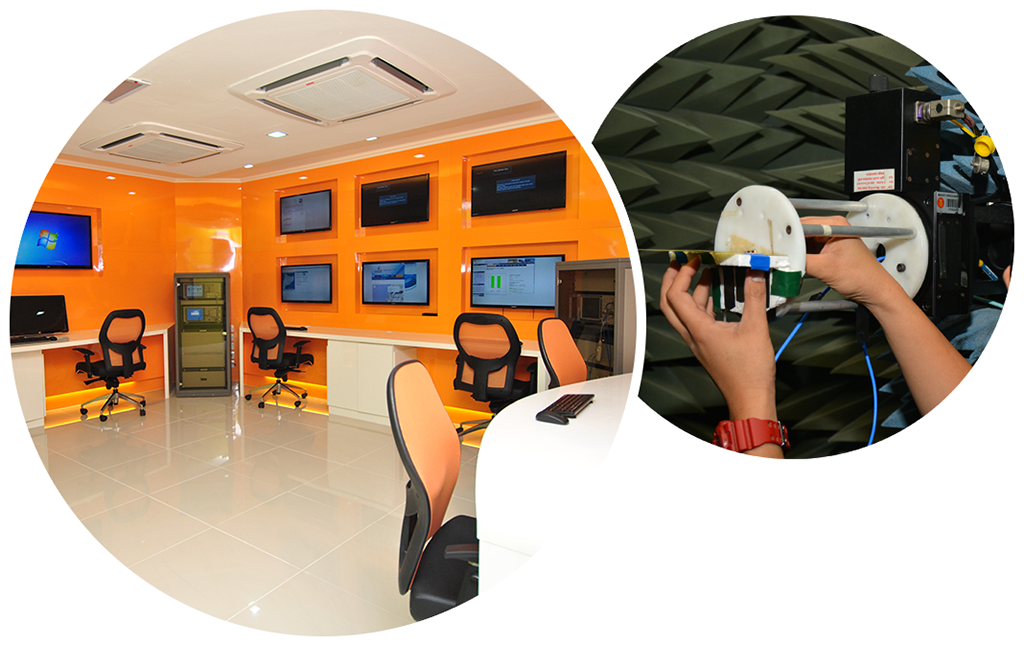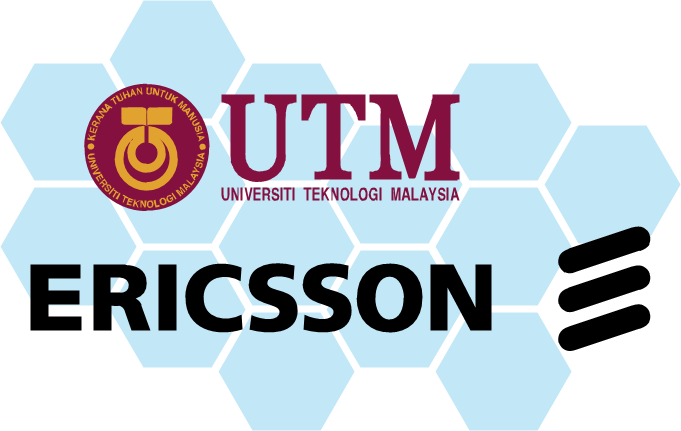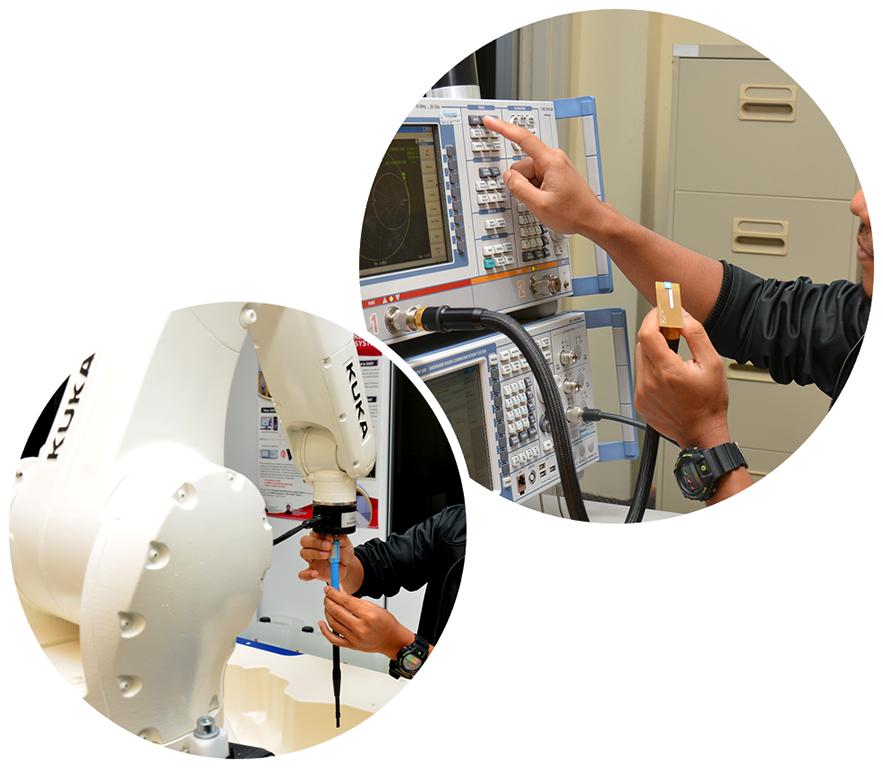Master of Engineering (Electronic and Telecomunications)

This program aims to produce professionals with advanced knowledge and skills in the field of Electronic and Telecomunications in line with the development of today’s communications technology. The program will also provide exposure in entrepreneurship and sustainability in technology and engineering to further contribute to the generation of talent and transformation leaders according to the current needs of the country.
Intake March/October* every year
- Application for March* intake is open from September to November (for international student) and from September to December (for local student).
- Application for October* intake is open from March to June (for international student) and from March to July (for local student).
*Implementation during COVID-19 Pandemic.
Graduates will be able to future-proof their engineering careers or become entrepreneurs in the telecommunications, electronics, and oil and gas industries
Career Prospect

Industry Driven Content Through Ericsson Educate

Ericsson Educate is the 21st centuries technology curated learning content that include automation, artificial intelligence, telecommunication, 5G technology, and internet-of-things (IoT).
This industry-driven content complements the university-level engineering courses, strengthen the students’ ICT skills, and increase university graduates’ readiness for jobs. Under the UTM-Ericsson partnership, Ericsson Educate content will be integrated into UTM relevant curriculum, e.g., the Master of Engineering (Wireless Communication and Network) degree program.
UTM students will enjoy not only the interactive online content from the Ericsson Educate’s portal but also the industry-oriented lectures and seminars by leading industry professionals.
Study Mode, Duration and Scheme
| Mode (Full time) | Minimum Duration | Maximum Duration |
| On-campus (at UTM JB) | 1.5 Years (3 Semesters) | 4 Years (8 Semesters) |
| Off-campus (at UTM JB/KL) | 2 Years (4 Semesters) | 4 Years (8 Semesters) |
| Sem. 1 | Sem. 2 | Sem. 3 |
| Core 1 | Core 3 | Elective 3 |
| Core 2 | Core 4 | Elective 4 |
| Elective 1 | Elective 2 | Free Elective |
| University Elective | Research Methodology | Project (Part 2) |
| Project (Part 1) | ||
| (12 credits) | (16 credits) | (15 credits) |
| Sem. 1 | Sem. 2 | Short Sem. | Sem. 3 | Sem. 4 |
| Core 1 | Core 3 | Research Methodology | Elective 3 | Free Elective |
| Core 2 | Core 4 | University Elective | Elective 4 | Project (Part 2) |
| Elective 1 | Elective 2 | Project (Part 1) |
||
| (9 credits) | (9 credits) | (6 credits) | (10 credits) | (9 credits) |
Program Educational Objective (PEO)
PEO1: To produce Master graduates with multidiscliplinary knowledge needed for designing, integrating and optimizing solutions in Electrical Engineering fields including electronics.
PEO2: To produce Master graduates who are able to generate new knowledge, idea and techniques in Electrical Engineering fields.
PEO3: To produce Master graduates who are able to function in R&D research team and innovative industrial ventures.
PEO4: To produce Master graduates who are able to consistently perform their responsibilities ethically and professionally.
Program Learning Outcome (PLO)
PLO2: Demonstrate mastery in conducting research independently in solving problems related to Electronic and Telecomunications Engineering through relevant analytical methods, simulations and/or experiments.
PLO3: Synthesize engineering knowledge through design and development.
PLO4: Plan and perform research undertakings responsibly, professionally and ethically.
PLO5: Communicate and express knowledge and ideas effectively.
PLO6: Continue life-long learning and apply technology for the betterment of humanity.
Curriculum Structure (43 credits)
Five(4) compulsory courses (12 credits)
| MKEL 1123 | Advanced Microprocessor System |
| MKEL 1173 | Advanced Digital System Design |
| MKET 1313 | Communication & Computer Networks |
| MKET 1413 | Advanced Digital Communications |
Four (4) elective courses and one(1) free elective course from this/other program (15 credits)
| MKEL 1113 | Nanoelectronic Devices |
| MKEL 1133 | Integrated Circuit Testing |
| MKEL 1143 | Advanced Digital Signal Processing |
| MKEL 1223 | Random Process |
| MKEL 1233 | Image Processing |
| MKEL 1243 | Software Engineering |
| MKEL 1263 | Special Topic in Electronic Engineering |
| MKEL 1183 | Advanced Computer Architecture |
| MKEL 1163 | VLSI Circuits & Design |
| MKEL 1253 | Speech Processing |
| MKET 1323 | Broadband Multimedia Networks |
| MKET 1333 | Optical Communications |
| MKET 1373 | Sonar and Acoustic Engineering |
| MKET 1383 | Satellite Communications |
| MKET 1393 | Network Modeling & Performance |
| MKET 1423 | Wireless Communication System |
| MKET 1433 | RF/Microwave & Antenna Design |
| MKET 1453 | Special Topic in Telecommunication Eng. |
| MKET 1463 | Advanced Communication Electronics |
| MKET 1483 | Optical Networks and Devices |
Two(2) parts of master dissertation course (10 credits)
| MKEL 1814 | Research Project Proposal (Part 1) |
| MKEL 1826 | Research Project Thesis (Part 2) |
Two(2) university elective courses (6 credits)
| UHAX XXX3 | (to choose from the list given by School of Graduate Studies) |
| MKEU 0013 | Introduction to Research Methodology in Electrical Engineering |
Please refer to the course synopses page for course description.
Entry Requirement*
Bachelor Degree in Electrical Engineering
- from tertiary institution recognized by UTM and Board of Engineers; OR
Bachelor Degree in a related Engineering field
- from tertiary institution recognized by UTM and Board of Engineers; OR
Other qualifications or with sufficient years of experience
- may be considered.

*An international student candidate is required to have a minimum qualification of the TOEFL of 550 or IELTS of band 6.
Contact Us
CONTACT US:
MEEL Programme Coordinator
Postgraduate Studies
School of Electrical Engineering
Universiti Teknologi Malaysia
81310 UTM Johor Bahru
Email: penyelarasmeel@fke.utm.my

